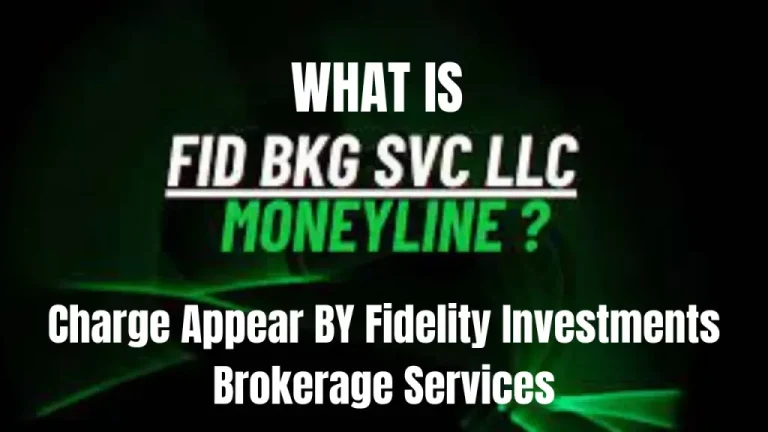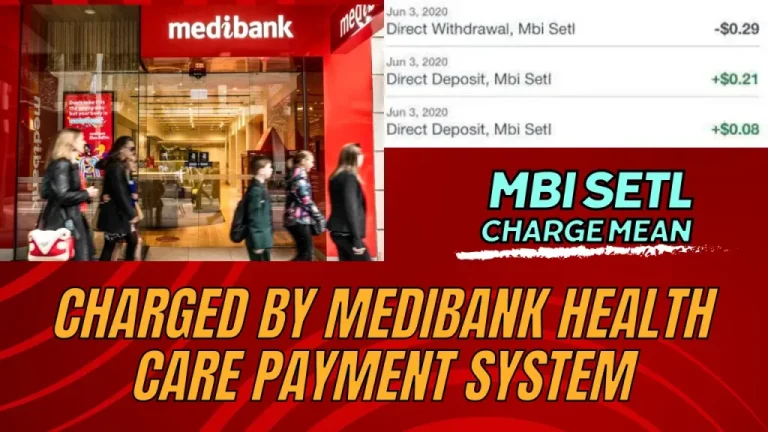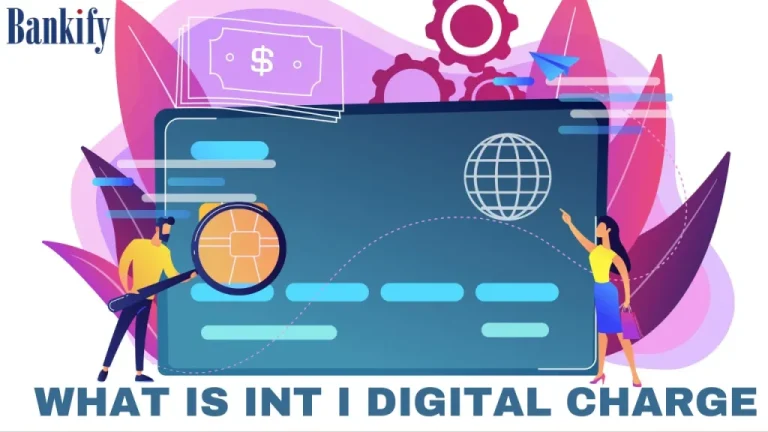What’s a “FID BKG SVC LLC” Charge?

Understanding Your Fidelity Banking Charge
If you’re staring at at your bank statement, and wondering what the transaction labeled “FID BKG SVC LLC MONEYLINE” is about? It’s likely to do with a transaction you made with Fidelity. I wanted to write this post, as recently an in-law got in touch with me first to see what it was about and I thought there is no doubt others will come across this as well.
First off, don’t worry, you’re not alone. Understanding the ins and outs of your credit card charges is key to managing your finances effectively and ensuring no fraudulent activities slip through the cracks.
Is “FID BKG SVC LLC” Legit?
- Yes
- No
What is Fidelity Investments?
Fidelity is a large investment brokerage service that manages almost in excess of $10 Trillion in assets and deals with a range of financial products and services such as: asset management, personal investing, retirement planning and so on. It is likely a result of some financial investment planning that has been charged to your statement.
Whether you are transferring money to Fidelity or away from Fidelity in your account that resulted in the charge “FID BKG SVC LLC MONEYLINE” code that you are seeing. I’d first recommend checking your online account with Fidelity to see if it matches up, it might just be a transaction you forgot about as it was set up automatically.
Charge Code: FID BKG SVC LLC
If you’re a Fidelity customer, you can be rest assured this charge is likely related to the regular management of your investments. However, if you’re a Fidelity customer and you’re still unsure over what has actually happened here, I would not hesitate to reach out to them. You should be able to find their contact details via their website.
You should be able to also Log in to your online account to view your monthly and quarterly account statements, year-end investment reports, trade confirmations, Fidelity tax forms, prospectuses, and financial reports. There is likely to be a recent transaction there that marries up with what you’re seeing on your statement. Again though, don’t hesitate to reach out to them if you are still unsure.
What is the “Moneyline” part?
Usually when you spot “moneyline” on your bank statement, it’s an indicator of a transaction that’s been processed using a type of financial software. Take “FID BKG SVC LLC money line” as an example – this means that MoneyLine, a financial software program has likely been used by Fidelity Investments, has been used to deduct money from your account. You can find out more about it in the Funding Account Agreement.
What To Do If You Don’t Recognize The Charge
Now, if you don’t recognise this charge or you don’t have investments with Fidelity, it could be an indication of fraudulent activity. Vigilance is key here. I would take immediate action and reach out to the bank or credit card company that you have associated with that bank account and just enquire about it.
See what the charge is about and let them know if you don’t recognise it (obviously make sure there isn’t a mix up and you actually do have a Fidelity account) and work with them to see if you can recover any of the funds that might have been lost.
Here’s how I would go about disputing these charges:
1. Gather up your information, have the charge statement in front of you with all the necessary information that you need, the date, the amount and the charge code. If you have any sort of additional information as well such as an email that coincides with it that could be useful.
2. Contact your bank, personally I would opt for the hotline, you can find this on their website but it should be on the back of your associated credit card too. You might find that you need to raise a dispute via an App (especially for more modern Neo banks).
3. Detail the concern clearly and provide all the necessary information upfront and explain your concern on whether it is incorrect or if you deem it to be fraudulent. Try to be as concise as possible when on the phone, so they can help you efficiently and effectively, they don’t need the full story, they just want to know the facts so that they can help you as quickly and effectively as they can.
4. If the bank has a set procedure, follow it and ask for any specific information that is needed on how to address the issue (usually a potential form you might have to fill in).
5. Keep a note of the interaction you just had, what time and date, what you spoke about and if you can note down the name as well. If you want to correspond by mail make sure it is certified. At this stage, they might have their procedure underway.
6. In the mean time you want to be keeping a close eye over your statements to ensure that there aren’t any other transactions that you’re not recognising.
Responding promptly, act fast and keep everything recorded. Carrying out the above is ensuring you’re being proactive and are addressing the situation. Carry out additional due diligence and ask your financial institution the exact steps and any other recommendations they have.
Repeat the process above to some extent and get in touch with Fidelity as well to see what they are seeing their side (of course unless this is not advised by your bank but I would ask if this is ok to do).
Getting In Touch With Fidelity
Have more questions or concerns with regards to the charge, is it more than you thought or less, or you simply don’t recognise it? Fidelity are only a call or click away. Reach them at (800) 343-3548 or visit their website at www.fidelity.com for further information.
Regularly Check Your Statement
In an era where online transactions have become the norm, it is crucial to stress the importance of regularly monitoring your credit card charges. The simplicity and convenience of a ‘click and pay’ lifestyle also comes with potential risks, including unauthorized transactions or discrepancies that might easily go unnoticed without diligent oversight.
Every charge on your statement tells a story about your spending habits, making it an invaluable tool for budgeting and managing your personal finances. But beyond that, keeping an eye on your charges is one of the simplest ways to quickly detect fraudulent activities.
It’s really unfortunate that cybercrime is a reality in our digital world, and your credit card details could be compromised without your knowledge. By checking your statements regularly, you can quickly spot unfamiliar transactions and take immediate action, preventing further financial damage.
With that in mind, we strongly encourage you to proactively manage and understand your financial accounts. This means not just keeping track of your income and expenses but also comprehending how your credit card works, the interest rates applied, charges for late payments, and even the benefits that come with it, such as reward points or cash back.
This article is accurate and true to the best of the author’s knowledge. Content is for informational or entertainment purposes only and does not substitute for personal counsel or professional advice in business, financial, legal, or technical matters.



